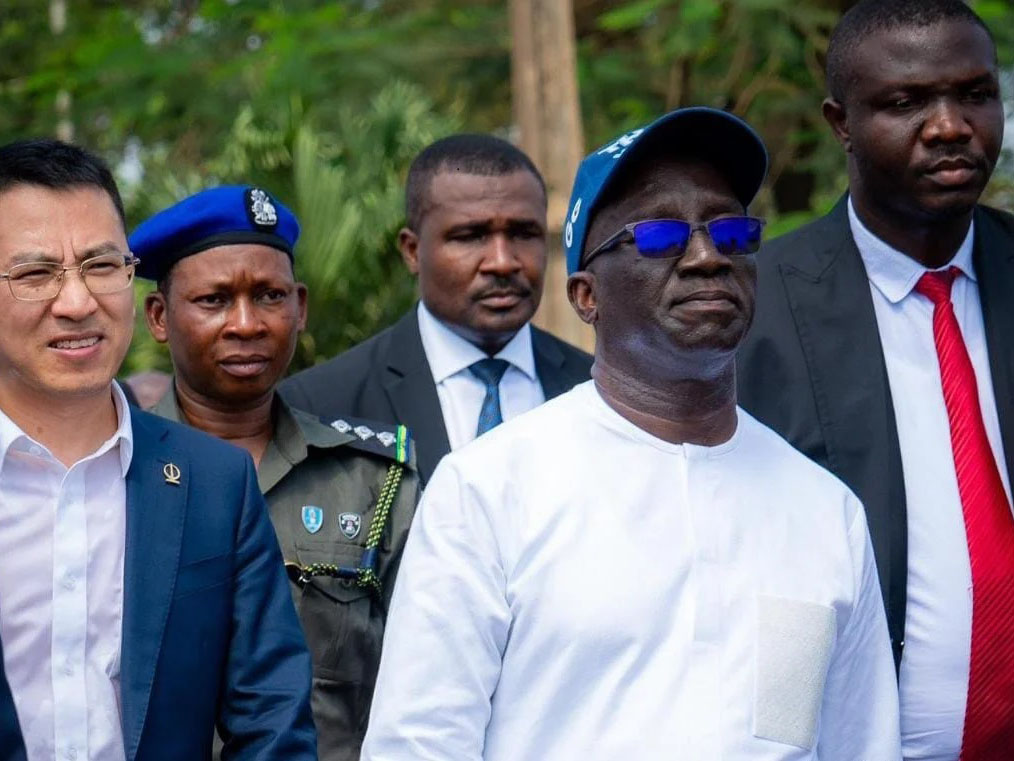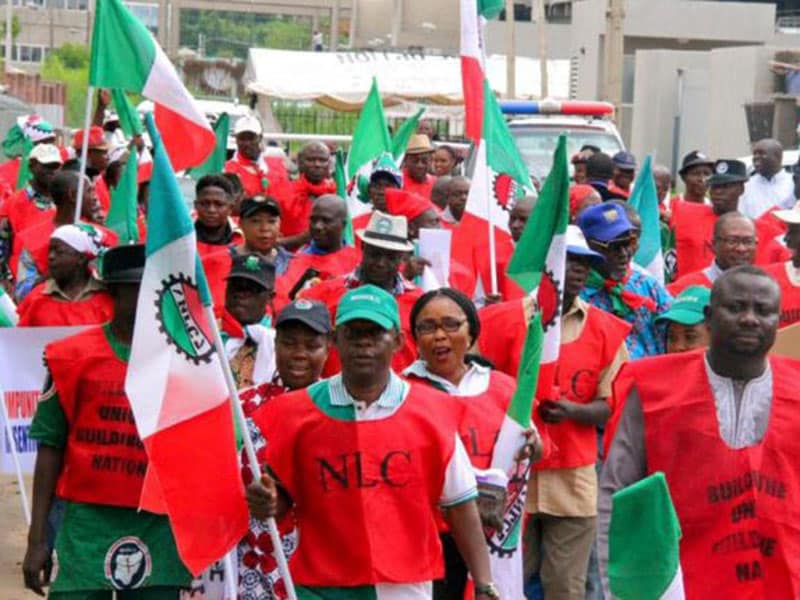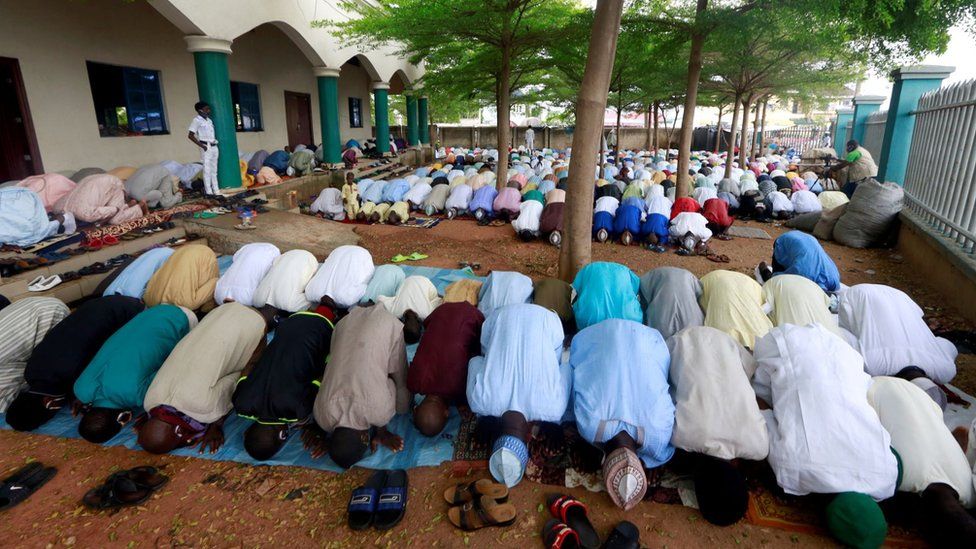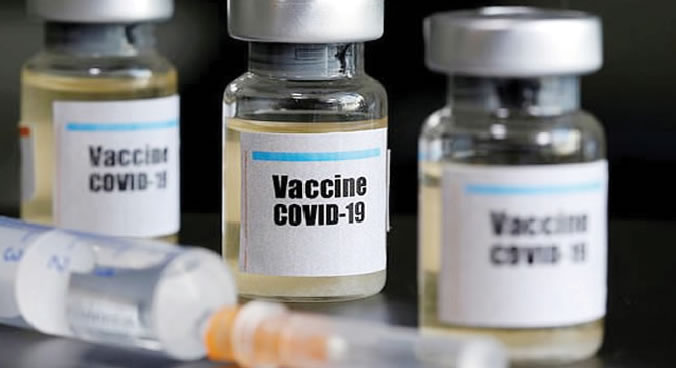Muslims began marking Ramadan with communal prayers Tuesday in a socially distanced contrast to the empty mosques of a year ago when Islam’s holiest month coincided with the start of the coronavirus pandemic.
COVID-19 cases are spiking in Indonesia, the world’s most populous Muslim nation, but vaccines are being administered and the government is loosening restrictions. Mosques were allowed to open for Ramadan prayers with strict health protocols in place, and with malls and cafes open, passers-by could again see curtains shielding the sight of food from people fasting.
Neighboring Muslim-majority Malaysia also eased its restrictions, including last year’s ban on “taraweeh” nighttime prayers and allowing popular open-air bazaars selling food, drinks and clothes to open.
Indonesia’s Religious Affairs Minister Yaqut Cholil Qoumas Yaqut Cholil Qoumas announced in a televised address Monday evening that the new Ramadan moon had been spotted. The holy month is marked by intense prayer, dawn-to-dusk fasting and nightly feasts.
Last year, authorities shuttered all mosques and clerics issued a fatwa, or edict, urging Muslims to pray at home over the holy month rather than congregate in crowded spaces and risk spreading the virus.
Muslims this year are expecting a virus resurgence but all mosques will be continuing to adhere to social distancing and other precautions, which will significantly reduce crowds, said Nasaruddin Umar, imam of Jakarta’s Istiqlal grand mosque.
“I miss everything of Ramadan already,” Umar said, “The heart of faithful Muslims is tied to the mosque… the longing for Ramadan lovers has finally been relieved today although the pandemic has not yet ended.”
In the capital, Jakarta, authorities disinfected 317 mosques on Sunday in preparation for Ramadan, said Jakarta Gov. Anies Baswedan. Social distancing markers have been installed and soap and hand sanitizers have been prepared.
The government also will allow people to hold “iftar” gatherings during Ramadan in restaurants, malls and cafes, which can serve customers up to 50% of their capacity and follow strict health guidelines.
Iftar occurs at sunset, the time Muslims break their fast and usually the prime time for people to have dinner together with friends and family members before the night prayer.
“Easing restrictions is like a breath of fresh air for us who are tired by this COVID-19 outbreak,” said Anna Mardyastuti, a resident in Jakarta. “Yes, they should act to stop the virus, but not block the door to worship or to change our tradition of Ramadan entirely,” she said.
In Malaysia, Wan Noradriana Balqis, 21, welcomed the return of community prayers in mosques but said she will avoid Ramadan bazaars that are often packed with people.
“I don’t think it’s a good idea to reopen the bazaars. The rules are there but many people don’t follow them,” the database administrative officer said.
Malaysia’s coronavirus cases have more than tripled since January to more than 362,000, with daily increases exceeding 1,000. Indonesia is the worst-hit country in Southeast Asia with over 1.5 million infections as of Monday and more than 42,600 deaths.
Indonesia will maintain its vaccine rollout through Ramadan as officials tried to ease worries over the Islamic teaching that Muslims should refrain “from anything entering the body” between sunrise and sunset.
Indonesia’s top Muslim clerical body said Muslims eligible for vaccinations are not only allowed but “required” to get them during Ramadan.
Although Muslims abstain from all food and drink in daylight hours during Ramadan, the vaccine enters muscle rather than the bloodstream and is not nutrition, so it does not invalidate fasting, said Asrorun Niam Sholeh, the head of fatwas for the Indonesian Ulema Council.
“If we carry on taking our vaccines, we can ensure that next Ramadan we do return to some normality,” Sholeh said.
Some vaccine sites in Jakarta are extending their opening hours so Muslims can come after they have broken their fast.
Indonesia plans to vaccinate two-thirds of its population of about 270 million people — or just over 180 million people by the end of next year. The current priorities are health care workers, elderly and other at-risk populations, and the two-dose vaccine will be free for all Indonesians.























